Workplace Legal Alert
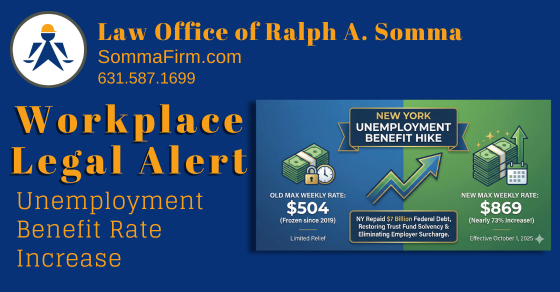
Maximum Unemployment Benefit Rate Increase
Effective October 6, 2025, the maximum unemployment benefit rate available to eligible employees increased from $504 to $869 per week. This is the first time the maximum benefit rate has changed since 2019 and is the result of the New York State payoff of the Unemployment Insurance Trust Fund loan.
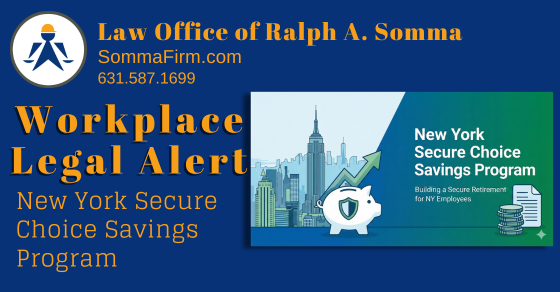
New York Secure Choice Savings Program
The New York State Secure Choice Savings Program was established in 2021 as a state-run retirement program for private-sector employees who do not have access to a qualified employer sponsored retirement program. Beginning in March of 2026, employers must register for the program or certify their exemption.
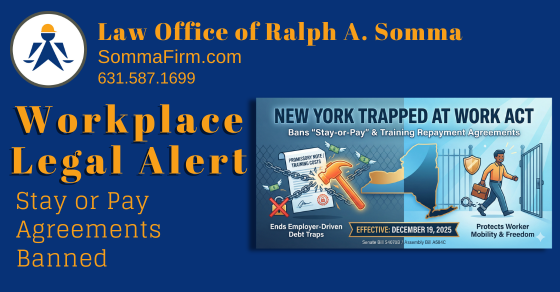
Stay or Pay Agreements Banned
Effective December 19, 2025, New York banned “stay or pay” agreements that require employees to repay employers for training costs if they leave before a specified period.
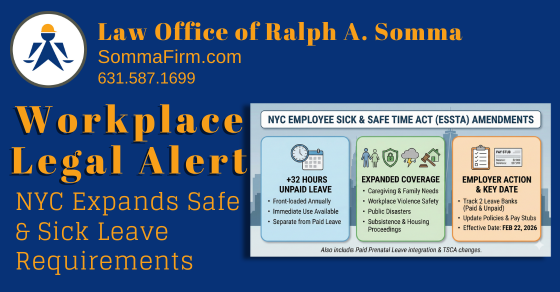
NYC Expands Safe & Sick Leave Requirements
Effective February 22, 2026, NYC employers are required to provide 32 hours of unpaid leave – in addition to the paid leave (40 or 56 hours depending on the employer’s size) available under ESSTA.
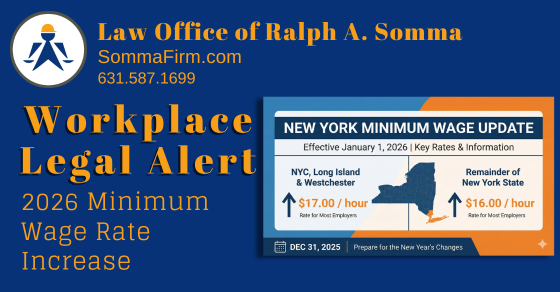
2026 Minimum Wage Rate Increase
Effective January 1, 2026 the minimum wage rate for employees in New York City, Long Island, and Westchester County will increase to $17 per hour. The rate for the remainder of New York State will increase to $16 per hour.
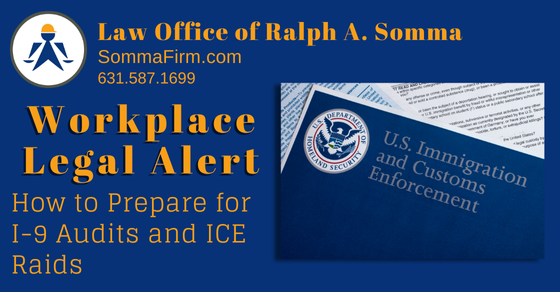
How to Prepare for I-9 Audits and ICE Raids
As a result of the Trump administration’s effort to identify and detain undocumented workers, employers can expect increased Form I-9 audits and raids from Immigration and Customs Enforcement (ICE) officials.
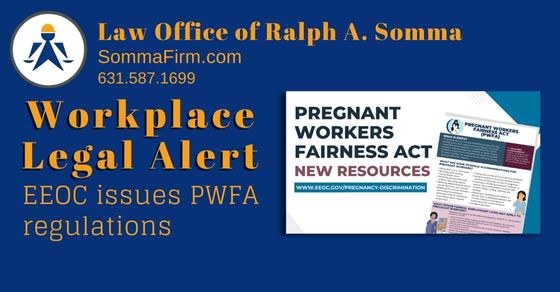
PWFA Regulations Issued
The federal Pregnant Workers Fairness Act (PWFA) requires that employers with at least 15 employees provide a reasonable accommodation for known limitations of employees who have a physical or mental condition related to pregnancy or childbirth, unless it creates an undue hardship (significant difficulty or expense) on the employer’s operation. The Equal Employment Opportunity Commission (EEOC) recently issued regulations, effective June 18, 2024, expanding on the obligations under the PWFA.
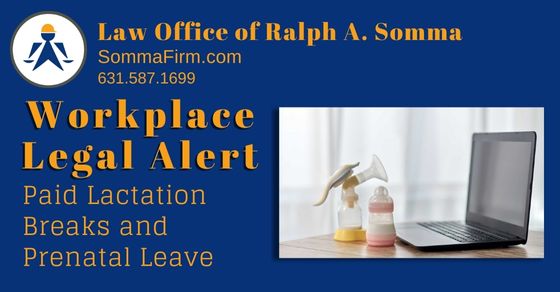
Paid Lactation Breaks and Prenatal Leave
Starting June 19, 2024, all employers in New York will be required to provide paid 30-minute breaks, and permit an employee to use existing paid break time or meal time for time in excess of 30 minutes, to employees who need to express breast milk for a nursing child. Also, starting Jan. 1, 2025, pregnant employees are eligible for up to 20 hours of paid time off in a 52-week period for doctor appointments, testing, medical procedures or other types of prenatal care.
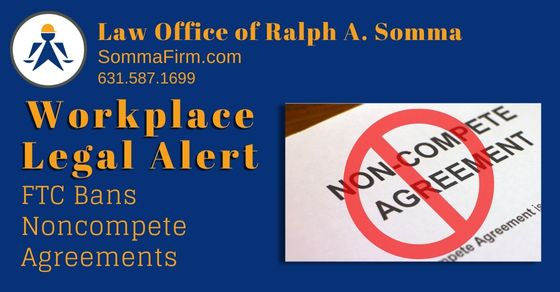
FTC Bans Non-Competes
On April 23, 2024, the United States Federal Trade Commission announced a new rule banning non-compete agreements. The rule is effective September 4, 2024.
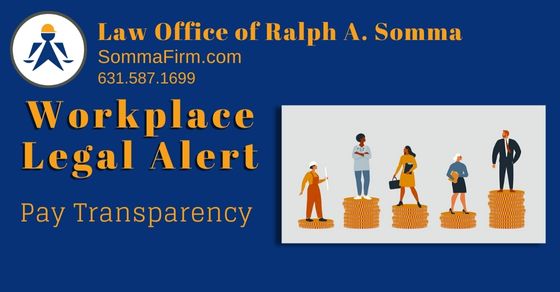
Pay Transparency
New York’s Pay Transparency Law requires employers with 4 or more employees to include a range of pay for all advertised job, promotion or transfer opportunities. The range must consist of a minimum and maximum annual salary or hourly rate believed to be accurate at the time of posting.

Freelance Isn’t Free
New York’s Freelance Isn’t Free Act (FIFA), effective August 28, 2024, imposes new legal obligations upon companies that hire an independent contractor to perform services valued at $800 or more.
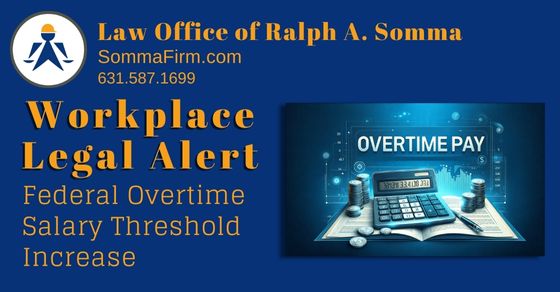
Federal Overtime Salary Thresholds Increase
On April 23, 2024, the United States Department of Labor issued a final rule increasing the salary thresholds used to determine whether executive, administrative, professional, outside sales, and computer employees must be paid overtime under the federal Fair Labor Standards Act.
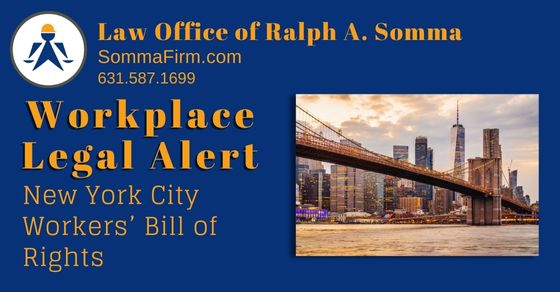
New York City Releases New Required Workers Bill of Rights Poster
On May 1, 2024, the Department of Consumer and Worker Protection released a multilingual poster that all employers in New York City must distribute to all current employees and new hires beginning July 1, 2024
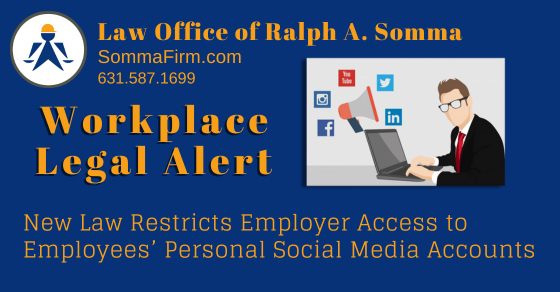
Employer Access to Social Media Accounts Restricted
A new law recently went into effect in New York restricting employers from requesting or accessing employees’ and applicants’ personal social media accounts.
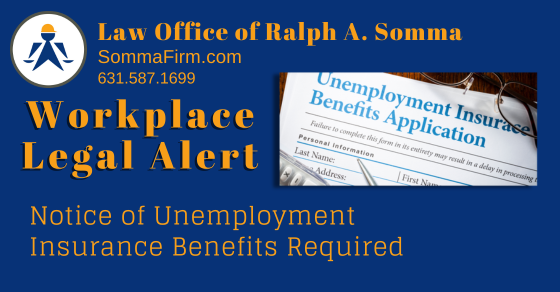
Notice of Unemployment Insurance Benefits Required
New York State Labor regulations have long required employers to provide workers with notice of their right to file for Unemployment Insurance when separated from employment. The law was recently expanded to require notice when there is “an interruption of continued employment resulting in total or partial unemployment”.
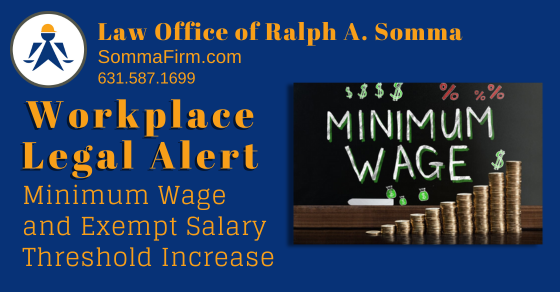
Minimum Wage and Exempt Salary Thresholds Increase
On January 1, 2024, New York’s minimum wage will increase to $16/hour in New York City, Westchester, and Long Island, and $15/hour for the rest of the state. Looking ahead, the minimum wage will increase by $0.50 in 2025 and 2026. In 2027, it will increase annually at a rate determined by the Consumer Price Index.

Recreational Cannabis is Now Legal in New York
On March 31, 2021, the Marijuana Regulation & Taxation Act (MRTA) legalized the recreational use of cannabis by adults in New York. The first legal sale of recreational cannabis took place at an dispensary in Manhattan on December 29, 2022.
How does legal cannabis effect the workplace?
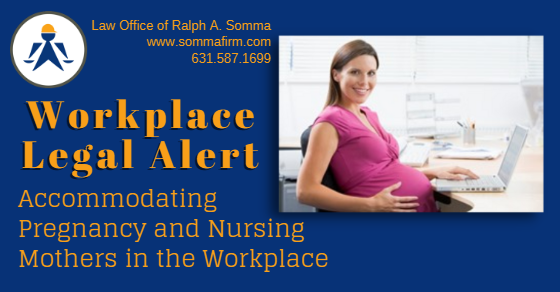
Accommodating Pregnancy and Nursing Mothers in the Workplace
Long before the enactment of the federal Americans with Disabilities Act in 1990, New York law prohibited discrimination against disabled employees and required employers to provide a reasonable accommodation to allow them to perform the essential job functions. However, many courts had determined that pregnancy alone was not a disability entitled to an accommodation.
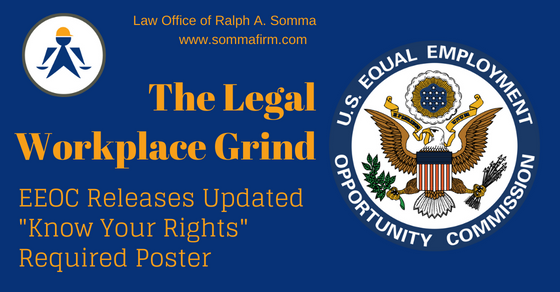
EEOC Releases Updated “Know Your Rights” Required Poster
The federal Equal Employment Opportunity Commission (EEOC) has released an updated poster that employers are required to prominently display in the workplace.

New York Paid Family Leave
Starting January 1, 2018, New York state joined California, New Jersey and Rhode Island in requiring employers to give employees paid time off for family medical leave.
Call Today For a FREE Consultation
Phone: (631) 587-1699
Email: rsomma@sommafirm.com
Or fill out the form below
Workplace Legal Alerts
Maximum Unemployment Benefit Rate Increase
Effective October 6, 2025, the maximum...
New York Secure Choice Savings Program
The New York State Secure Choice Savings Program...
Stay or Pay Agreements Banned
Effective December 19, 2025, New York banned...
NYC Expands Safe & Sick Leave Requirements
As previously reported, all New York employers...
2026 Minimum Wage Rate Increase
Effective January 1, 2026 the minimum wage rate...
How to Prepare for I-9 Audits and ICE Raids
As a result of the Trump administration’s effort...
PWFA Regulations Issued
As discussed in the February 2023 Workplace...
Paid Lactation Breaks and Prenatal Leave
As previously reported in my February 2023...
FTC Bans Non-Competes
On April 23, 2024, the United States Federal...
Pay Transparency
New York’s Pay Transparency Law requires...
